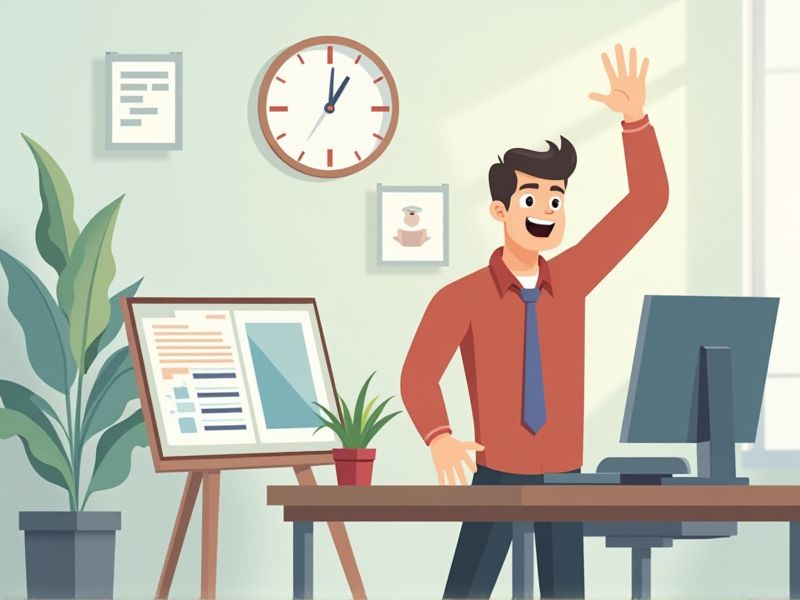
Yuval Noah Harari emphasizes that "questions you cannot answer are usually far better for you than answers you cannot question" in his book *21 Lessons for the 21st Century* . This perspective highlights the importance of embracing uncertainty and continuously seeking knowledge, which is crucial for personal growth and improvement in the 21st century. By acknowledging what we do not know, we open ourselves to new learning opportunities and foster a culture of inquiry. This mindset is particularly relevant in today's fast-paced world, where adaptability and the ability to learn from uncertainty are key to success.
How to Be Better at XXI
Lifelong learning
Embrace diverse learning resources, as tapping into online courses, podcasts, and scholarly articles provides multiple perspectives that deepen understanding. Adopting a proactive mindset, such as setting specific, measurable goals, drives personal development and fosters accountability. Engaging in interdisciplinary research stimulates creative problem-solving by connecting information across fields. Tracking progress with data-backed methods enables you to refine strategies and continually expand your knowledge base.
Digital literacy
Investing in targeted digital literacy programs builds the essential skills needed to assess, curate, and create digital content efficiently. Regular engagement with diverse digital tools fosters adaptability and sharpens critical analysis, which in turn enhances decision-making in dynamic tech environments. Participation in curated data forums and specialized online communities reinforces practical learning and drives skill retention. Integrating digital innovation into everyday tasks not only improves efficiency but also establishes a solid foundation for sustained success in the technology-driven economy.
Critical thinking
Deliberately questioning assumptions and scrutinizing available evidence catalyzes improved analytical skills. Engaging in systematic data analysis sharpens the ability to detect biases and logical inconsistencies. Seeking alternative viewpoints creates a feedback loop that enhances problem-solving capacity. Reflecting on decision processes establishes a foundation for steadily elevating critical thinking performance.
Creative problem-solving
Integrate diverse experiences and perspectives into your thought process to spark fresh ideas that challenge the status quo. Experiment with various methods to dissect problems, and support your intuition with data to back up your innovative choices. Foster an environment that encourages trial and error, because structured failures can lead to unexpected breakthroughs. Embracing continuous learning and collaborative brainstorming significantly boosts creative problem-solving abilities.
Adaptability
Embracing a flexible mindset enables you to assess new information and pivot strategies in response to evolving conditions. Cultivating an attitude of continuous learning and resilience prepares you to handle unforeseen challenges effectively. Monitoring key performance metrics and trends provides the data needed to make timely, informed adjustments. Experimentation with innovative approaches and seeking feedback from diverse sources directly enhances your adaptability in a rapidly changing landscape.
Authentic networking
Authentic networking involves investing in genuine relationships rather than fleeting transactional connections. Prioritizing transparency and active listening helps create a foundation of trust that naturally leads to mutual support and professional growth. Data indicates that professionals who engage authentically not only expand their influence but also experience higher rates of career progression and job satisfaction. By consistently aligning your interests with those of your network, you foster an ecosystem of reciprocity that drives long-term success.
Cross-cultural competency
Immerse yourself in diverse cultural experiences by actively seeking interactions beyond your familiar social circles to challenge and expand your worldview. Engage in targeted learning--attending workshops, reading diverse literature, and studying languages--to gain a comprehensive understanding of varying cultural norms and histories. Frequent cross-cultural dialogues and practical experiences help identify and rectify inherent biases while fostering mutual respect. Consistent self-reflection and feedback from varied perspectives promote adaptive communication techniques that are essential for thriving in a globalized landscape.
Mindfulness
Integrate short, daily mindfulness exercises--such as focused breathing--into your routine to steadily cultivate a present-moment awareness. Experiment with meditation apps or guided sessions that adapt to your schedule and needs. Track your progress by noting moments of clarity and reduced stress, which can reinforce positive habits over time. Reflect on your experiences to fine-tune your practice, gradually deepening both concentration and self-awareness.
Strategic agility
Develop a holistic perspective by integrating data analytics and market trends to predict and respond to emerging opportunities swiftly. Invest in continuous learning and agile planning frameworks that empower teams to adjust strategies quickly when confronted with new challenges. Enhance communication channels across departments to facilitate real-time information sharing and coordinated decision-making. Leverage iterative scenario planning and regular strategy reviews to remain adaptable and maintain competitive advantage in a fast-evolving environment.
Sustainable innovation
Integrating quantitative sustainability metrics with innovative design methodologies is essential to drive responsible innovation in the 21st century. Utilizing data-driven insights to optimize resource efficiency creates a feedback loop that steadily improves environmental performance and cost-effectiveness. Collaborative cross-disciplinary efforts between policy makers, engineers, and community leaders can uncover solutions that are both scalable and socially impactful. Focusing on transparent reporting and continuous improvement ensures that sustainable initiatives evolve, resulting in a resilient competitive advantage.
Summary
Lifelong learning empowers individuals to continuously evolve their skills and knowledge, keeping pace with rapid technological and societal changes. Digital literacy serves as a cornerstone for accessing and evaluating vast amounts of online information, enabling informed decision-making in a data-rich world. Critical thinking enhances the ability to analyze complexities, question assumptions, and synthesize diverse viewpoints into coherent strategies. Together, these competencies foster a proactive approach to personal and professional growth in the dynamic landscape of the 21st century.
